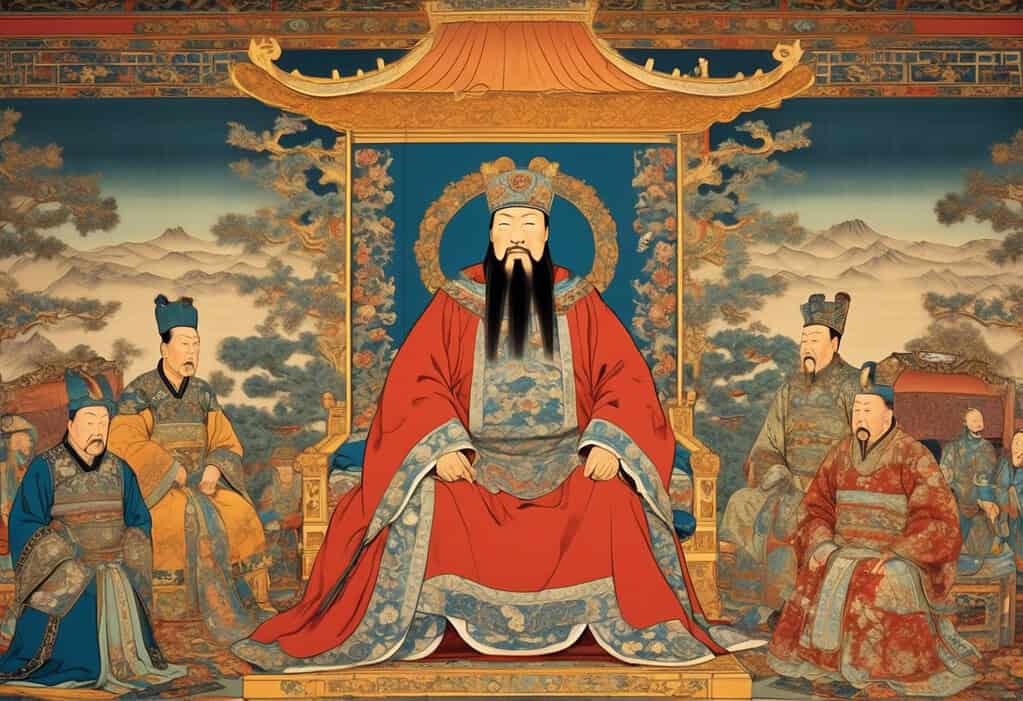The Yuan Dynasty was a ruling dynasty of China from 1271 to 1368 CE. It was established by Kublai Khan, the grandson of Genghis Khan. The dynasty was known for its control over a vast empire, including parts of present-day Mongolia, Korea, and Vietnam. The Yuan Dynasty was a time of cultural exchange, with influences from both Chinese and Mongolian traditions. Despite its achievements, the dynasty faced challenges such as rebellions and economic difficulties, leading to its eventual downfall in 1368.
Summary List
- The Yuan Dynasty was established by Kublai Khan in 1271 CE.
- It was the first dynasty in China to be ruled by non-Chinese people, specifically the Mongols.
- The Yuan Dynasty was known for its promotion of foreign trade and cultural exchange, especially with the Middle East and Europe.
- During this time, Marco Polo visited China and wrote extensively about his experiences at the Yuan court.
- The Yuan Dynasty fell in 1368 CE due to internal rebellions and the rise of the Ming Dynasty.
Games And Apps
Learning Modules
Founding of the Yuan Dynasty - 1271 CE
In 1271 CE, the Mongol chieftain Kublai Khan declared himself emperor of a new dynasty known as the Yuan Dynasty. This marked the beginning of a new era in Chinese history, as the Mongols established their rule over the vast territory of China and ushered in a period of cultural exchange and innovation.
I Want To Learn This!Mongol Conquest of China - 1279 CE
In 1279 CE, the Mongols, led by Kublai Khan, completed their conquest of China, establishing the Yuan Dynasty. This marked the end of the Song Dynasty and the beginning of a new era in Chinese history. The Mongol rule brought significant changes to Chinese society, culture, and politics.
I Want To Learn This!Battle of Yamen - 1279 CE
In 1279 CE, the Battle of Yamen marked the end of the Southern Song Dynasty in China. The Mongol Yuan Dynasty, led by Kublai Khan, defeated the Song fleet in a decisive naval battle, leading to the downfall of the Song Dynasty and the establishment of Yuan rule in China.
I Want To Learn This!Reign of Kublai Khan - 1279-1294 CE
Reign of Kublai Khan - 1279-1294 CE: Experience the rise and fall of one of history's most influential rulers, as Kublai Khan expands the Mongol Empire, establishes the Yuan Dynasty in China, and faces challenges from within and without. Explore the legacy of this enigmatic leader in a tumultuous era.
I Want To Learn This!Establishment of the Yuan Dynasty's Capital in Beijing - 1272 CE
In 1272 CE, Kublai Khan, the founder of the Yuan Dynasty, established Beijing as the new capital of his empire. With its strategic location, grand architecture, and bustling markets, Beijing quickly became a symbol of power and prosperity for the Mongol rulers. This move solidified the city's importance in Chinese history.
I Want To Learn This!Construction of the Great Wall of China under the Yuan Dynasty - 1368 CE
During the Yuan Dynasty in 1368 CE, the construction of the Great Wall of China reached its peak. Thousands of laborers toiled for years, shaping the iconic structure that would stand as a testament to the power and determination of the empire for centuries to come.
I Want To Learn This!Rebellion of the Red Turbans - 1351-1368 CE
Rebellion of the Red Turbans - 1351-1368 CE marked a pivotal moment in Chinese history as the peasant uprising led by Zhu Yuanzhang overthrew the ruling Yuan dynasty. This period of chaos and conflict paved the way for the rise of the Ming dynasty, shaping the future of China for centuries to come.
I Want To Learn This!Fall of the Yuan Dynasty - 1368 CE
In 1368 CE, the Yuan Dynasty, established by Kublai Khan, fell to the Ming Dynasty in China. This marked the end of Mongol rule and the beginning of a new era in Chinese history. The fall of the Yuan Dynasty reshaped the political landscape of East Asia for centuries to come.
I Want To Learn This!












